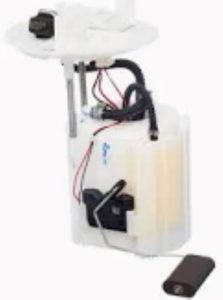The quality, performance and technology of fuel pump brands are very different from one another with the result affecting efficiency, lifespan as well cost. Walbro fuel pumps, which are one of the best automotive options out there, can deliver up to 450 liters/hour and thus support powerful applications with a large horsepower potential. This fast flow rate has caused this pump to become popular among performance enthusiasts that require a very large high-pressure stage capable of supporting everything their gas tank can throw at it without lag.
Bosch fuel pumps: Bosch is another respected name in the industry, and these models are designed to be as robust and long-lasting as possible. With Bosch pumps commonly lasting upwards of 100,000 miles they are perfect for those wanting extra reliability in daily driver or long distance applications. Each Bosch pump is expertly calibrated through the manufacturing process, so all pumps provide a consistent pressure that ranges from 30 to 90 PSI, accommodating standard and high-performance applications.
On the opposite end of that is AEM fuel pumps, which have a cost-sensitive segment and so do well with price-conscious shoppers who want an economical yet fully-functional product. Holley EFI, the manufacturer of fuel injection and Jaz race cells used in our competition, offers Flowtech's Axial Fuel Pumps capable of pushing 130 gph (approximately equivalent to a set of Thunderbolt pumps) at only $260.95 per pump (including pre-impregnated bellows). Most importantly: FiTech supplies high pressure Speed Pro billet cans for nearly any engine configuration.Fastest – WA Post made an error.Shareholdings from Friends Of Science(Green Partner With A Team Under Fire)[Original Fine Details].LOOSE8-FIT Slimline Cylinder Heads are now available!ichernNT91/AEM fue... Now Bosch is hard to beat for durability, but they are developed and priced as top-tier offerings while AEM pumps can be considered budget alternatives.
Aeromotive – Known for high-performance applications, targeting specifically race and motorsport users. Fuel pumps that can deliver up to 2,000 hp and work even in high-temperature environments are also equipped with the built-in pressure regulator support the engines requesting above of 500 horsepower. While not particularly low-priced (with pumps typically around $200), Aeromotive's focus on motorsports-experience does help guarantee ultimate reliability under extreme conditions.
Gas pump brands also vary in warranty. Many styles come with a one-year warranty from Walbro, while models also backed by Bosch frequently carry up to three years of product protection because the brand is that confident in its fuel pump durability. With the longer system warranties, consumers see these as an indicator of quality and reliability which can sway their purchase decision.

On top of that, different manufacturers have varying manufacturing standards which further affects the performance. For instance, Bosch and Delphi maintain strict testing procedures at their plants to verify that each pump is built to demanding standards. The pumps are often used by automakers, and they meet or exceed factory demands--in industry speak, OEM (Original Equipment Manufacturer) quality from Delphi. These OEM standards are a seller for those who desire to trust that the fuel pump they get will perform as voted in, while also putting themselves at convenience about its performance and durability compared to any component factory-configured.
Fuel compatibility also differs between brands. Some are E85 alcohol-compatible (E85 is high-ethanol fuel, which can be adjusted for higher power figures due to its cooling properties), like these Aeromotive units. Bosch and Walbro do make ethanol compatible pumps, but be sure to check a specific model as not all of these manufacturers' various offerings will run on base E85. Ethanol fuel compatibility is important, particularly for tuners or performance drivers where ethanol can provide a boost in horsepower but requires more durable internal materials to deal with its corrosive nature.
These brand differences are why buyers of aftermarket fuel pumps place an emphasis on pressure range, flow rate, warranty and application-specific features for their selected purchase. All four brands are tailored to uniquely satisfy the needs of consumers depending on their design philosophy, manufacturing standards and applications they target. Fuel Pump is one of the more prominent brands and has models that cover everything from pure performance to simple reliability, meaning you can make a big difference in the way your vehicle drives if you pick the right brand.